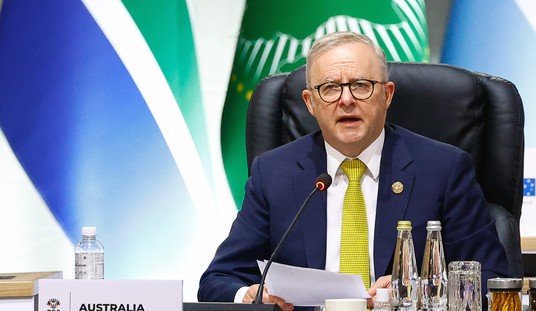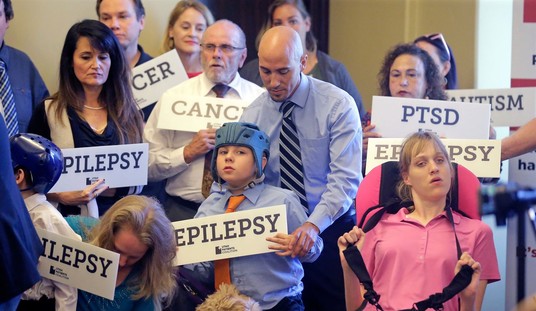I recently had the pleasure to introduce a fellow District of Columbia resident to shooting by teaching her the NRA Basic Pistol Class. To do the shooting portion of the class, however, both she and I had to drive some 45 minutes outside the District to a target range in southern Maryland. That reinforced my view that D.C., needs a public shooting range.
Washington has not had a public shooting range since the NRA left the District to go to Virginia many years ago. Now that hand guns and some semi-automatic rifles are legal in D.C., it’s time D.C., again has a public range.
It may not be well known that the federal government subsidizes public shooting ranges, but it does. Federal funds are available for hunter and firearms safety education and public target ranges under the Pittman Robertson Wildlife Conservation Act, enacted in 1937.
Pittman Robertson provides for the distribution to states and territories of federal funds collected from taxes on firearms, ammunition, and archery equipment. All of the states and territories receive Pittman Robertson funds except the District of Columbia, which is statutorily excluded from Pittman Robertson funds, possibly because there is no hunting allowed in the nation’s capital.
The 2014 distributions ranged from $1,267,963 for American Samoa, Guam, Virgin Islands, Northern Mariana Islands to $35,275,009 to Texas. The minimum any state received was $4,494,878 going to Delaware, Vermont, Rhode Island and New Hampshire. In all the Secretary of the Interior allocated $760,973,830 of Pittman Robertson funds, but zero to the District of Columbia.
The exclusion of the District from Pittman Robertson funding is unfair because District residents do hunt, albeit in other jurisdictions, and District residents do buy guns and ammunition, now legally thanks to the Heller decision. Thus, District residents pay the federal taxes on these commodities which are in turn distributed to the states and territories pursuant to Pittman Robertson.
Establishing a commercial shooting range in the District of Columbia is problematic. The city’s zoning commission has made the location of a firearms related business well-nigh impossible. No retail establishment sells firearms, ammunition or firearms related products. Only one federal firearms licensee performs transfers in the District and he maintains no stock of firearms and does not deal in ammunition. He transfers firearms purchased outside the District by appointment only. Moreover, his business location is at the headquarters of the DC Metropolitan Police Department because he was unable to obtain a lease to continue conducting his business at a site which met zoning restrictions after he lost his prior lease.
Those restrictions would not prevent the District itself, or the federal government, from establishing a public target range within D.C. Given its anti-gun bias, however, D.C., is unlikely to spend a substantial amount of taxpayer revenue to construct and operate a public target range. However, it may be able to be convinced to do so with federal support via Pittman Robertson funding. So as a first step to establishing a public range in Washington, Congress needs to amend Pittman Robertson to make the District of Columbia eligible for funding.
District of Columbia residents need a public target range. Because D.C., residents now may own and use firearms for personal protection, they need to be safe and competent with their firearms. As Washington Police Chief Cathy Lanier pointed out some time ago, if someone is going to have a gun for self-protection, they need to be proficient with it.
A Washington public range would facilitate marksmanship and allow residents of the nation’s capital to purchase ammunition and firearms within the District rather than taking their dollars to neighboring jurisdictions. Most importantly, the proposed range – through training opportunities – would foster firearm safety and responsible firearm ownership. The proposed range would also serve as a facility for the District’s various law enforcement professionals to maintain their firearm proficiency.
One of the more distressing facts is the low hit rate of law enforcement officers when they must fire their weapons in the line of duty. Every round fired has to go somewhere. A miss threatens innocent persons who are all too often hit in police shootings.
This occurs in large part due to the lack of practice many police officers have with their duty weapons, and this results at least to some degree from a lack of suitable range training facilities and training time. Recall the recent incident in New York City where nine innocents were wounded when two police officers opened fire on an armed suspect. Thus a public firing range would supplement existing law enforcement ranges in the area.
Moreover, Washington has an estimated 12,000 armed private security officers, called Special Police Officers, who must periodically qualify with their firearms. These officers guard a variety of private and governmental buildings. Currently, these officers must qualify outside the District because the District lacks a range on which they may qualify.
Governmental ranges are not available to these officers. This deficiency would be remedied by establishment of a public range in DC and would allow these officers to maintain and improve their proficiency with their duty firearms.
Congress therefore needs to amend Pittman Robertson to include the District of Columbia as a recipient of Pittman Robertson funds, and to take other steps to encourage the District to establish a public target range.







Join the conversation as a VIP Member